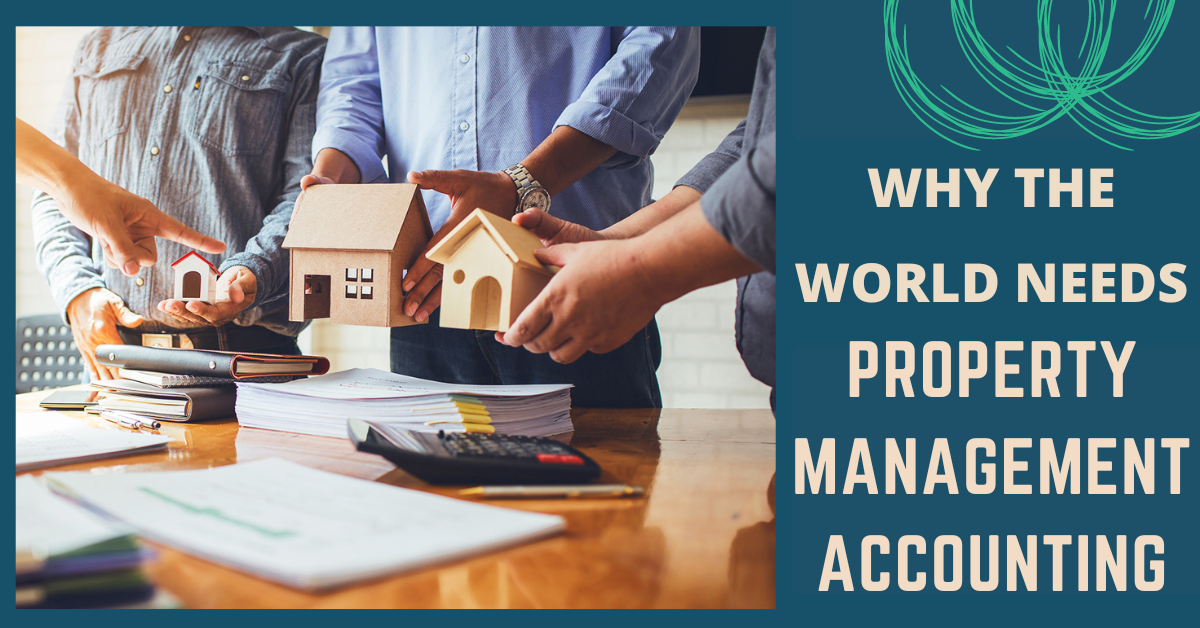Property management accounting promotes transparency by providing reliable financial information. This transparency is important for property owners and investors to make informed decisions.
Compliance with Regulations:
The role of property management accounting is to ensure compliance with a variety of financial regulations and tax laws. By adhering to these regulations, property managers and owners cut the risk of legal issues, penalties, and fines.
Effective Financial Management:
Property management accounting helps property owners and managers to manage their finances. Financial reporting, budgeting, forecasting, and tracking income and expenses are all part of the process. This enables property managers to optimize cash flow, control costs, and maximize profitability.
Tax Optimization:
Property management accounting professionals are well-versed in real estate tax regulations. They help property owners optimize their tax positions by identifying eligible deductions. Also taking advantage of tax benefits specific to rental properties
Decision-Making Support:
An analysis of property management accounting provides information about financial performance, key performance indicators, and insight into rental property operations. This information supports property owners and managers in making informed decisions about acquisitions, pricing, property improvements, and investment strategies.
Rental Market Analysis:
Property management accounting incorporates rental market analysis. Which helps property owners and managers understand market trends, demand, and competition. This knowledge is necessary for setting rental rates, determining market positioning. And making informed investment decisions.
Tenant Satisfaction:
Property management accounting contributes to tenant satisfaction. Effective financial management ensures that rental income is tracked. Security deposits are handled. And accurate financial statements are provided. As a result, tenant trust is fostered and the tenant experience is enhanced.
Investor Confidence:
It contributes to investor confidence in the real estate market when financial reports are accurate and transparent through property management accounting. Reliable financial information attracts investors and facilitates capital inflow, leading to the growth and development of the property market.
Business Growth and Expansion:
Property management accounting provides the financial foundation for scaling property management businesses. It helps track performance, test profitability, and make strategic decisions for growth and expansion.
Industry Standardization:
Property management accounting contributes to the standardization of accounting practices in the real estate industry. This ensures consistency, comparability, and reliability of financial information across different properties and companies, promoting trust and integrity in the industry.
In summary, property management accounting is necessary for financial transparency, compliance, effective management, tax optimization, decision-making support, tenant satisfaction, investor confidence, business growth, and industry standardization. In order for the real estate accounting market to remain successful and sustainable. It plays an important role.
Qualities and characteristics that are important for hiring a property management accountant:
When observing property management accounting, there are several key qualities and characteristics that are important to look for. These qualities can help ensure that the property management accountant is competent, reliable, and able to meet the specific needs of the property management industry. Here are some of the best qualities to observe in property management accounting:
Expertise in Property Management Accounting:
Look for a property management accountant with specialized knowledge and experience in property management accounting. An individual who wishes to succeed in the real estate industry must be familiar with the unique financial aspects and challenges involved.
Strong Accounting Knowledge:
The property management accountant should have a solid foundation in accounting principles and practices. It is imperative that they are familiar with concepts such as the preparation of financial statements, the preparation of budgets, the management of cash flow, and tax regulations.
Attention to Detail:
To maintain accurate and precise financial records of property management. It requires meticulous attention to detail. To ensure accuracy, accountants must be thorough in their work and be able to spot discrepancies in financial transactions and errors.
Analytical and Problem-Solving Skills:
Accounting professionals who are effective at property management must have strong analytical and problem-solving abilities. Analyzing financial data, identifying trends, providing insights, and resolving problems should be among their abilities.
Skill in Property Management Software:
Property management accountants should be proficient in using property management accounting software and tools. A financial analyst should be capable of tracking income and expenses, generating reports, and streamlining the entire financial process using software.
Communication and Collaboration:
You should seek out an accountant with excellent communication skills who specializes in property management. They should be able to explain complex financial concepts in a clear and concise manner and collaborate with property owners, managers, and other stakeholders.
Trustworthiness and Integrity:
Property management accountants handle sensitive financial information, so trustworthiness and integrity are vital qualities to observe. They should maintain confidentiality and prove ethical behavior in handling financial data.
Timeliness and Efficiency:
Accounting for property management should be performed and on time by the accountant. They should have excellent time management skills to ensure timely financial reporting and responsiveness to inquiries or requests.
Continuous Learning and Adaptability:
The best property management accountants are willing to update their knowledge and skills to keep up with changing regulations, accounting standards, and industry trends. They should be adaptable and open to learning new technologies and best practices.
Professionalism and Client Focus:
A property management accountant should exhibit professionalism in their interactions and have a client-focused approach. They should focus on the needs of property owners and managers, providing excellent customer service and being responsive to their inquiries and concerns.
By observing these qualities in property management accounting, you can ensure that you hire or work with an accountant who is competent, reliable, and capable of managing the financial aspects of your rental properties.
Main mistakes that a property management accountant should avoid:
To ensure effective property management accounting, it is important for accountants to be aware of and avoid common mistakes that can have negative consequences for property owners and managers. Here are some main mistakes that a property management accountant should avoid:
Inaccurate or Incomplete Record-Keeping:
Property management accountants must maintain accurate and complete financial records. Mistakes such as incorrect data entry, missing transactions, or failure to record expenses and income can lead to inaccurate financial reporting and misrepresentation of the property’s financial health.
Failure to Reconcile Bank Statements:
Regular reconciliation of bank statements with financial records is essential for property management accountants.Failing to do so can result in discrepancies, unidentified errors, and difficulties in tracking cash flow.
Ignoring or Mishandling Tenant Deposits:
Property management accountants should handle tenant security deposits and in compliance with legal requirements. Legal disputes and financial penalties may result from mishandling or failing to account for these deposits.
Lack of Proper Expense Categorization:
Accounting and financial reporting need accurate expense categorization. Accountants should ensure that expenses are allocated to relevant categories, such as maintenance, repairs, utilities, or property management fees.
Failure to Stay Updated on Tax Regulations:
Real estate tax regulations can change over time, and property management accountants should stay updated on any revisions or updates. Failing to follow tax requirements, deductions, or reporting obligations can result in penalties or legal issues.
Poor Communication with Clients or Stakeholders:
Effective communication is vital for property management accountants to understand client expectations, provide financial updates, and address any concerns or questions. In the absence of clear and open communication, misunderstandings may occur and stakeholders may become dissatisfied.
Neglecting Financial Analysis and Reporting: Property management accountants should not focus on recording transactions but also analyze financial data to provide insights and recommendations for property owners and managers. Neglecting financial analysis and reporting can prevent property managers from making informed decisions and optimizing financial performance.
Inadequate Use of Property Management Software:
Property management accountants should leverage property management accounting software to streamline processes, improve accuracy, and enhance efficiency. Failing to use these tools can result in manual errors, inefficiencies, and missed opportunities for automation.
Lack of Attention to Regulatory Compliance:
Property management accountants should ensure compliance with applicable regulations, including lease agreements, local housing laws, fair housing regulations, and tax requirements. It is possible that failing to follow regulations will result in legal disputes, financial penalties, and damage to the property management company’s reputation.
Not Seeking Professional Development Opportunities:
The field of property management accounting is evolving, with changes in accounting standards, tax laws, and industry practices. Accountants should seek professional development opportunities, such as attending relevant seminars or training, to stay updated and enhance their skills.
By avoiding these common mistakes, property management accountants can provide accurate financial reporting, maintain compliance with regulations, and contribute to the success and financial health of the managed properties.
Popularity of property management accounting
Property management accounting has gained popularity in recent years due to several reasons:
Increasing Complexity of Real Estate Industry:
The real estate industry has become more complex, with property owners and managers facing many financial challenges. Property management accounting provides specialized expertise to navigate these complexities and manage the financial aspects of rental properties.
Growing Demand for Professional Financial Management: Property owners and investors recognize the importance of professional financial management to maximize returns on their real estate investments. Property management accounting offers a comprehensive approach to financial management, ensuring accurate record-keeping, financial reporting, and analysis.
Compliance with Regulations: Real estate tax regulations, financial reporting standards, and industry-specific compliance requirements are evolving. Accounting for property management reduces the risk of penalties and legal repercussions for property owners and managers. For more information about it you can also visit at answertenant.
Improved Financial Transparency:
Property management accounting enhances financial transparency by providing accurate and reliable financial information. This transparency is valued by property owners, investors, and stakeholders, as it allows them to make informed decisions, assess property performance, and check investment opportunities.
Optimization of Tax Positions:
Property management accountants have expertise in real estate tax regulations and can help property owners optimize their tax positions. They identify eligible deductions, depreciation, and other tax benefits specific to rental properties, resulting in potential tax savings and increased profitability.
Efficient Financial Management:
Effective financial management is essential for the success of rental properties. Also to streamlining financial processes, it also allows you to manage your cash flow and budget . Owners and managers of properties are able to increase their operating efficiency by focusing on core business activities and improving their financial performance.
Enhanced Decision-Making:
Property management accounting provides financial analysis, key performance indicators (KPIs), and insights into property performance. The information presented in this report enables property owners and managers to make informed decisions about the acquisition of properties, pricing strategies, enhancements of properties, and strategies for investing in real estate.
Technological Advancements:
The availability of property management accounting software and tools has improved the efficiency and accuracy of financial management. These technological advancements have made property management accounting more accessible and appealing to property owners and managers.
Increased Investor Confidence:
Accurate financial reporting and reliable financial management can increase investor confidence in real estate . Investors are more likely to invest in properties where they can trust the financial information. Where they have assurance that their investments are being managed .
Industry Professionalization:
The property management industry has become more professionalized. By providing high-quality services to property owners and tenants. It plays a crucial role in this professionalization. By ensuring accurate financial management and reporting.
It has become popular due to its ability to address the financial complexities of the real estate industry, provide transparency, follow regulations, optimize tax positions, ease informed decision-making, leverage technology, increase investor confidence, and contribute to the professionalization of the property management industry.
Conclusion
In conclusion, property management accounting is crucial in today’s world for several reasons. Real estate industry is able to secure effective financial management, transparency, and compliance. Investors, and stakeholders rely on property management accounting. To make informed decisions, maximize returns on their investments. Also to ensure legal and regulatory compliance.
The complexity of the real estate industry and the evolving financial landscape demand expertise. In managing the financial aspects of rental properties. It provides the following expertise. Offering accurate record-keeping, financial reporting, and analysis that enable property owners and managers to assess the financial health of their properties and make strategic decisions.












